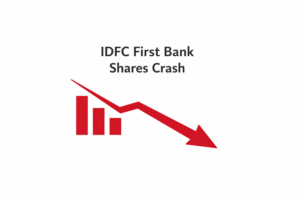Key Differences: Shares vs. Debentures Explained

Introduction: Equity vs Debt Instruments in Investment
Shares and debentures are two distinct financial instruments companies use to raise capital. Both play a crucial role in the financial world, offering investors different ways to invest money and earn returns.
- Shares (Equity Financing): Represent ownership in a company.
- Debentures (Debt Financing): Represent a loan given to the company.
Understanding the differences between the two helps investors align choices with their risk appetite, financial goals, and market outlook.
What Are Shares? Understanding Equity Financing
Shares represent ownership in a company and are often referred to as equity. When you buy shares, you become a shareholder, entitled to voting rights and a share of company profits through dividends and capital appreciation.
💡 Start investing with confidence! Explore Lemonn and grow your wealth.
Types of Shares: Equity Investment Options
- Ordinary (Common) Shares – Voting rights, dividends, but highest risk.
- Preference Shares – Fixed dividend, priority over ordinary shares, limited voting rights.
- Voting & Non-Voting Shares – Control vs passive income.
- Redeemable Shares – Repurchased by the company later.
- Cumulative Preferred Shares – Unpaid dividends carried forward.
- Convertible Shares – Can be converted into ordinary shares.
Advantages of Investing in Shares
- Potential for capital appreciation
- Regular income via dividends
- Ownership rights and decision-making power
- Long-term wealth creation opportunities
- Portfolio diversification
What Are Debentures? Debt Financing Explained
Debentures are debt instruments companies issue to borrow money from investors. Unlike shares, debentures make investors creditors, not owners.
- Return: Fixed interest payments (coupon).
- Rights: No voting rights.
- Priority: Paid before shareholders in liquidation.
Types of Debentures: Debt Investment Options
- Convertible Debentures – Can be converted into shares.
- Perpetual Debentures – No fixed maturity date.
- Secured Debentures – Backed by company assets.
- Unsecured Debentures – Higher risk, no collateral.
Benefits of Investing in Debentures
- Lower risk compared to shares
- Predictable fixed income
- Higher claim on company assets
- Defined repayment (maturity) period
Key Differences Between Shares and Debentures
| Feature | Shares (Equity Financing) | Debentures (Debt Financing) |
|---|---|---|
| Nature | Ownership in company | Loan to company |
| Investor Status | Company owner | Company creditor |
| Returns | Dividends + Capital Gains | Fixed Interest (Coupon) |
| Voting Rights | Yes | No |
| Risk | High (market-driven) | Low (predictable income) |
| Liquidation Priority | Last to be paid | Paid before shareholders |
Shares vs Debentures: Risk and Return Comparison
- Shares: High risk, potential for high returns.
- Debentures: Low risk, steady returns.
Choosing between the two depends on your investment strategy and financial goals.
Legal Rights: Shareholders vs Debenture Holders
- Shareholders: Ownership rights, voting power, dividends.
- Debenture Holders: No voting rights, fixed interest, creditor status.
Investment Strategy: Should You Invest in Shares or Debentures?
- Opt for shares if you want long-term growth, capital appreciation, and ownership rights.
- Choose debentures if you prefer predictable income, lower risk, and stability.
- A balanced portfolio often includes both.
Market Trends: How Shares and Debentures Respond
- Shares: Sensitive to stock exchange fluctuations, company performance, and investor sentiment.
- Debentures: Impacted by interest rate movements. When rates rise, debentures lose appeal; when rates fall, they gain value.
Conclusion: Which Is Better – Shares or Debentures?
Both shares and debentures offer unique opportunities:
- Shares → Ownership, higher potential rewards, but higher risk.
- Debentures → Safer, fixed returns, but no ownership benefits.
The right choice depends on your risk tolerance, goals, and market conditions. A diversified approach with both can balance growth and stability.
FAQs on Shares and Debentures
Q. What are the key legal differences between shares and debentures?
A. Shares provide ownership rights and voting power; debentures make you a creditor with fixed interest but no ownership rights.
Q. Can debentures be converted into shares?
A. Yes, convertible debentures allow conversion into equity shares.
Q. How do dividends differ from interest payments?
A. Dividends depend on profits; debenture interest is fixed and guaranteed.
Q. Are debentures always secured?
A. No. Some are secured by assets; others are unsecured.
Q. How do I decide between shares and debentures?
A. Base your choice on risk tolerance, time horizon, and income needs. Shares suit risk-takers; debentures suit conservative investors.
By mastering the differences between shares and debentures, you’ll be better equipped to design an investment portfolio that balances growth, stability, and long-term wealth creation.
Disclaimer
The stocks mentioned in this article are not recommendations. Please conduct your own research and due diligence before investing. Investment in securities market are subject to market risks, read all the related documents carefully before investing. Please read the Risk Disclosure documents carefully before investing in Equity Shares, Derivatives, Mutual fund, and/or other instruments traded on the Stock Exchanges. As investments are subject to market risks and price fluctuation risk, there is no assurance or guarantee that the investment objectives shall be achieved. Lemonn do not guarantee any assured returns on any investments. Past performance of securities/instruments is not indicative of their future performance.
To read the RA disclaimer
Research Analyst - Gaurav Garg







